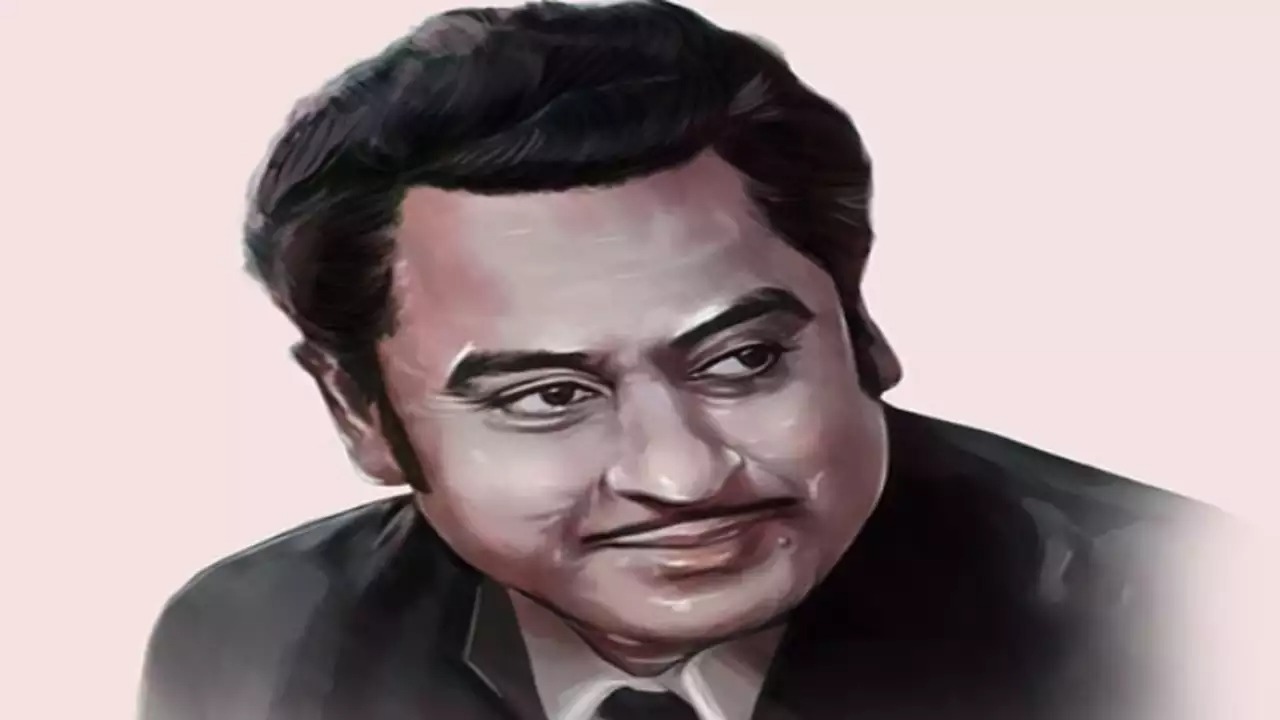Introduction:
Kishore Kumar, the legendary Indian playback singer, actor, and composer, left an indelible mark on the Indian film industry and music scene. With his soulful voice, unmatched versatility, and eccentric personality, he captivated audiences for decades. Even years after his demise, Kishore Kumar's legacy continues to thrive, inspiring generations of musicians and leaving an indelible impact on Indian cinema.
Early Life and Musical Journey:
Born as Abhas Kumar Ganguly on August 4, 1929, in Khandwa, Madhya Pradesh, Kishore Kumar hailed from a talented family. His elder brother, Ashok Kumar, was a prominent actor, and his other siblings, Anoop Kumar and Sati Devi, also had connections to the film industry. Despite having no formal training in music, Kishore Kumar's innate talent propelled him towards a career in singing.
Kishore Kumar's initial foray into the film industry was as an actor, but it was his unique singing style that garnered attention. Though his early songs were overshadowed by the established playback singers of the time, Kishore Kumar's breakthrough came in 1969 with the film "Aradhana," where his soulful rendition of "Roop Tera Mastana" became an instant hit. From there, his musical journey soared to unprecedented heights.
Versatility and Mastery:
One of the hallmarks of Kishore Kumar's career was his versatility. He effortlessly traversed various genres, including romantic ballads, peppy numbers, soulful melodies, and even comic songs. His ability to adapt his voice to suit different actors and situations made him the go-to singer for many leading actors, including Rajesh Khanna, Amitabh Bachchan, and Dev Anand.
Whether it was the melancholic "Kuch Toh Log Kahenge" or the foot-tapping "Pag Ghungroo Bandh," Kishore Kumar's vocal range and expressiveness lent a unique charm to every song he sang. His ability to convey emotions with his voice made him a favorite among music composers and directors, who recognized his unparalleled talent.
Unconventional Approach and Legacy:
Apart from his vocal prowess, Kishore Kumar was known for his eccentric personality. He infused his songs with his own brand of quirkiness, often adding yodels, hiccups, and playful improvisations that became his signature style. This unconventional approach set him apart from his contemporaries and further solidified his position as an iconic figure in the industry.
Kishore Kumar's legacy extends beyond his singing career. He also acted in numerous films, showcasing his versatility as a performer. Some of his notable films include "Chalti Ka Naam Gaadi," "Padosan," and "Half Ticket," where he displayed his comedic timing and impeccable acting skills.
Even after his untimely demise on October 13, 1987, Kishore Kumar's songs continue to resonate with audiences of all ages. His melodies remain evergreen, and his voice still evokes a range of emotions. His songs have stood the test of time and continue to find a place in modern playlists and film soundtracks.
Influence and Inspiration:
Kishore Kumar's impact on the Indian music industry cannot be overstated. His unique style influenced generations of singers and composers, and his songs continue to inspire and be reimagined in new renditions. His ability to effortlessly switch between different moods and genres set a benchmark for future playback singers. Artists like Kumar Sanu, Sonu Nigam, and Arijit Singh have acknowledged his influence on their own careers.
Kishore Kumar's songs have become a part of the cultural fabric of India. They evoke nostalgia, bring back memories, and provide solace in times of joy or sorrow. His romantic ballads like "Pal Pal Dil Ke Paas" and "O Mere Dil Ke Chain" are still considered classics, while his energetic numbers like "Mere Sapno Ki Rani" and "Zindagi Ek Safar" continue to uplift spirits.
His collaborations with renowned music directors like R.D. Burman, S.D. Burman, and Laxmikant-Pyarelal resulted in timeless melodies that are cherished by music lovers across the globe. Kishore Kumar's songs have transcended regional boundaries and language barriers, earning him a dedicated fan base not just in India but also among the Indian diaspora worldwide.
Kishore Kumar's contributions to the Indian film industry were recognized with several accolades, including eight Filmfare Awards for Best Male Playback Singer. In 1997, he was posthumously awarded the prestigious Lata Mangeshkar Award by the Madhya Pradesh government for his outstanding contributions to Indian cinema.
Beyond his musical achievements, Kishore Kumar's legacy also lies in his fearless individuality. He remained unapologetically himself throughout his career, often defying conventions and refusing to conform to societal norms. His eccentricities and idiosyncrasies only added to his allure and endeared him to fans even more.
In conclusion, Kishore Kumar's voice and persona continue to resonate with millions of fans across generations. His songs have become an integral part of Indian cinema and music history, and his influence can be felt in the work of contemporary artists. Kishore Kumar's legacy as a versatile singer, actor, and free-spirited individual remains unmatched, making him an everlasting icon in the annals of Indian entertainment.

hESmCGpIKuawqYk
XfHpWKejaFr
ehzYEJkFNncXUZ